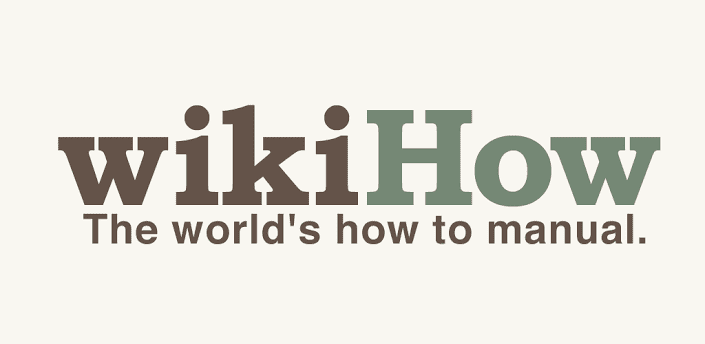We are lucky to live in an age where the internet is so readily accessible. Anything you want to learn can be found online, but how do you know for sure if the article that you have located is written by a qualified professional? If you are looking for one of the best how to guides online, try wikiHow, the site that is “owned by everyone”.
This site is great for its wide variety of information, advice, reviews and tips. It is a wiki-based online collaborative community. Users can log on and create how to guides on any topic imaginable. Readers can then choose to utilize this information or to offer edits and additions based on their own level of expertise in that perspective field.
Topics Range from Silly to Technical
The topics range from the silly, like How to Make a Book Float, to the more technical variety, such as How to Overlay Sectional Aeronautical Charts in Google Earth. You can search by categories or by simply typing in a few words in the search window. It’s incredibly easy to use, and with a few clicks of the mouse, you too can begin to educate the world on how to “let the cat out of the bag” by joining wikiHow!
WikiHow is growing in leaps and bounds as people from all over the Internet want to have more confidence in the information that they are finding online. Because this instructive website allows for anyone in the wikiHow community to edit or add information to any of its postings, an added sense of trust is automatically built-in to the content found on wikiHow. Readers of the how to guides can even ask follow-up questions directly to the writer for more in-depth knowledge.
How the wikiHow Editing Process Works
The site also monitors all postings, edits, and additions through a staff of volunteers. You can opt to follow your own article submissions by watching, reviewing and re-editing the edits that others provide to your posting. Another reason that wikiHow is one of the best how to guides on the Internet today is due to is “Nominations for Deletion” category. This works as a sort of “community action” self monitoring method to alert the administration of questionable content. This comes into play when the article is mean spirited, sexually charged, inaccurate, or just plain wrong! It keeps poor content off of wikiHow.
WikiHow makes the whole process of editing extremely easy. After logging in, you are brought to a simple screen that allows you to start actively contributing as an editor. In this way, wikiHow funnels viewers into a pool of potential editors.
Don’t Like Advertisements? Disable Them
WikiHow is free to use, but the administrators make it very clear that wikiHow is a hybrid organization. It is a cross between a “non-profit” and a “business”. The non-profit side is shown through its ultimate goal. The goal is to provide the world with useful and valuable information to enhance the public good and to benefit the life of the individual. But like a business, it has to make money in order to stay alive. They allow for advertising, but also allow the readers to “hide ads” with the push of a button. GetHuman is another website that allows the user to disable ads.
WikiHow actually began as eHow.com back in 1990. EHow eventually declared bankruptcy and was later bought by Jack Herrick and Josh Hannah. By late 2009, the site was boasting 20 million monthly visitors. Now, it has a global Alexa traffic ranking in the top 200 and a US traffic ran in the top 100. With articles that are fast approaching 150 million by number of posts, wikiHow has become the go to source for how to guides. They have been reviewed by The New York Times, The Washington Post, The Wall Street Journal and everywhere in between. It looks like wikiHow is here to stay!
Check out these fun…and funny postings:



